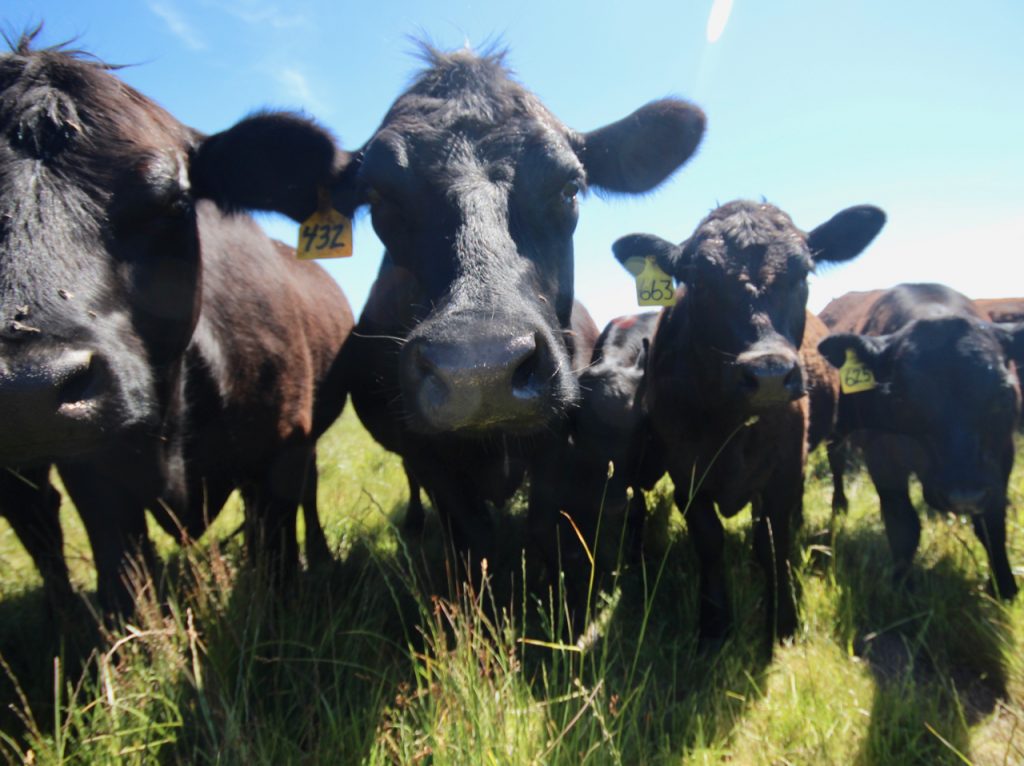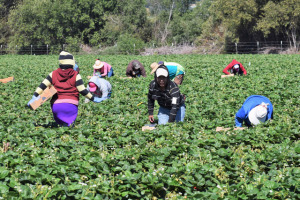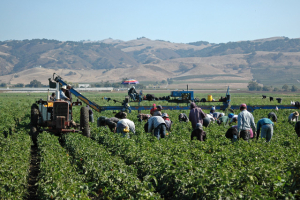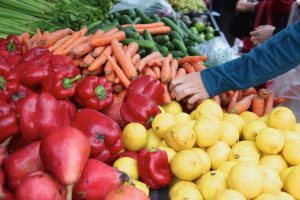
The Logjam in Meat Processing is Killing Producers & Meat Plant Workers
October 28, 2020 Roots of ChangeLast month I mentioned the tragic events surround the death of poultry processing workers at a Foster Farms plant in California’s San Joaquin Valley. It is a sad fact that along with hospitals, elder care facilities, prisons and homeless shelters, meat processing plants are the work sites with the greatest COVID-19 infection rates. Closely stationed workers on the processing lines, many of whom travel together in cramped vehicles and live together in crowded homes due to low wages, are at high risk. As of September nearly 43,000 workers in 496 plants across the US had contracted the disease and over 200 have died. And this is only one critical part of the large meat processing challenge in America where five companies control nearly 90% of the meat supply.
This kind of concentration also means low prices for farms and ranches producing the livestock that feed the plants and the ability of the largest processor to kill off its competition. According to an excellent piece recently published in Civil Eats, there are 800 federally inspected plants and 1900 state inspected plants operating in the US. The number of meat processing facilities has fallen by 83% since the 1960s. When these plants began to shutter in March and April due to COVID, the meat supply chain nearly failed and serious problems persist. As you will hear from today’s podcast episode dedicated to one attempt to fix the logjam, this loss of options for livestock producers is driving more and more farms and ranches out of business.
Concentration of processing, like all forms of monopoly, destroys competition, enriching the few by allowing them to control pricing for both raw materials and finished products. Livestock producers and consumers get the shaft and the processors and market makers reap the greatest profits. To fix this problem, changes to federal and state regulations for meat production and processing are needed. But because of food safety concerns, animal rights activists, and the power of money in politics, change is hard to achieve. Policy makers, investors, public health specialists and consumers need a deeper understanding of the problem and a wider vision of the benefits of change in order to alter regulations.
Consequently, ROC is working with California Certified Organic Farmers (CCOF) and a growing coalition of livestock, environmental and rural advocates to address the problem. The UC Davis Food Systems Lab and UC Cooperative Extension staff from Marin and Sonoma Counties are providing the coalition with technical assistance. These researchers are helping with data collection and analysis. The goal of advocates and researchers is to assemble a menu of possible solutions that will make meat processing safer for workers; provide producers with more economically feasible options for slaughter, packaging and distribution of their meat; and bring more economic stimulus to rural economies. By doing this the coalition and researchers believe the meat supply chain will be more resilient in a century sure to be buffeted by more epidemiological and climate disruptions. ROC is leading the research team in interviewing stakeholders in the supply chain from field to table. Watch for updates on our progress.
Image: Doris Meier
California Certified Organic Farmers, Covid, Live Stock Producers, meat supply chain


